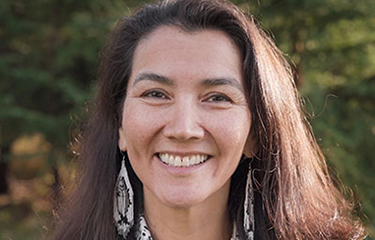Chance of Magnuson-Stevens reauthorization slim, says Mary Peltola

Alaska’s sole member of the U.S. House Representatives said Congress is unlikely to pass a reauthorization of the Magnuson-Stevens Act this year or next.
“I think that there is not a very strong likelihood – I think everybody recognizes that there's a very slim chance that Magnuson-Stevens will be authorized this year or this Congress,” U.S. Rep. Mary Peltola (D-AK) said in an interview with Ocean Strategies this week.
The problem, according to Peltola, is the U.S. Senate.
“One of the things that I've been really becoming more and more aware of, and this was a joke that [Rep. Don Young (R-AK)] had, he said, ‘I'm a Republican, and our enemy aren't Democrats. It's the Senate, because 90 percent of the work that the House does dies in the Senate,’” Peltola said.
Work on the Magnuson-Stevens Act reauthorization halted after Young's death in March 2022, but quickly restarted once Peltola took his place in Congress. Peltola first won a special election in August 2022 to complete Young’s remaining term, and then won reelection to a full two-year term a few months later.
“When I was elected to this special election seat, one of the first people who called was [Rep.] Jared Huffman [D-CA] to say, ‘Hey, let's keep working. Now we can hit go again on this and try to get Magnuson across the finish line.’ So we were able to get it out of [the House Natural Resources Committee], we had a markup, it went to the floor, and then quickly was dead on arrival in the Senate because there was a Republican majority on the Senate side who were not in alignment with that bill 100 percent,” Peltola said.
With hopes for a reauthorization dim, Peltola said she is working directly with NOAA to address Alaskans’ concerns.
“Since we're not optimistic about Magnuson-Stevens reauthorization, can we take another look at these national standards and see about looking at the intent language, and really trying to honor that intent language,” she said.
Specifically, she is talking to NOAA about updating federal guidelines for maximum sustainable yield and escapement are defined in ways that ensure Alaskan fisheries can return to abundance.
“Under a low ocean productivity paradigm, how much pressure can we really be putting on these stocks?” Peltola said.
Peltola’s first work on the Magnuson-Stevens Act was as a witness in 2021, testifying in favor of having Indigenous representation on the North Pacific Fisheries Management Council. That remains a focus area for the legislator.
“One of the shortcomings that I think we've seen in our current structure is that tribes are not at the table. Indigenous people are not at the table,” she said. “And we're not saying that we want to change the composition, to remove all of the other user groups and all the other folks that are representing. We're just saying, we also want to be at the table. We don't want to outnumber anybody. We don't want anyone to feel surrounded by us or taken. We don't want to do a hostile takeover. This isn't a power grab. We just want a seat at the table. We just want to be part of the discussion and at the same level that the other folks are.”
Photo courtesy of WikiMedia Commons






Share